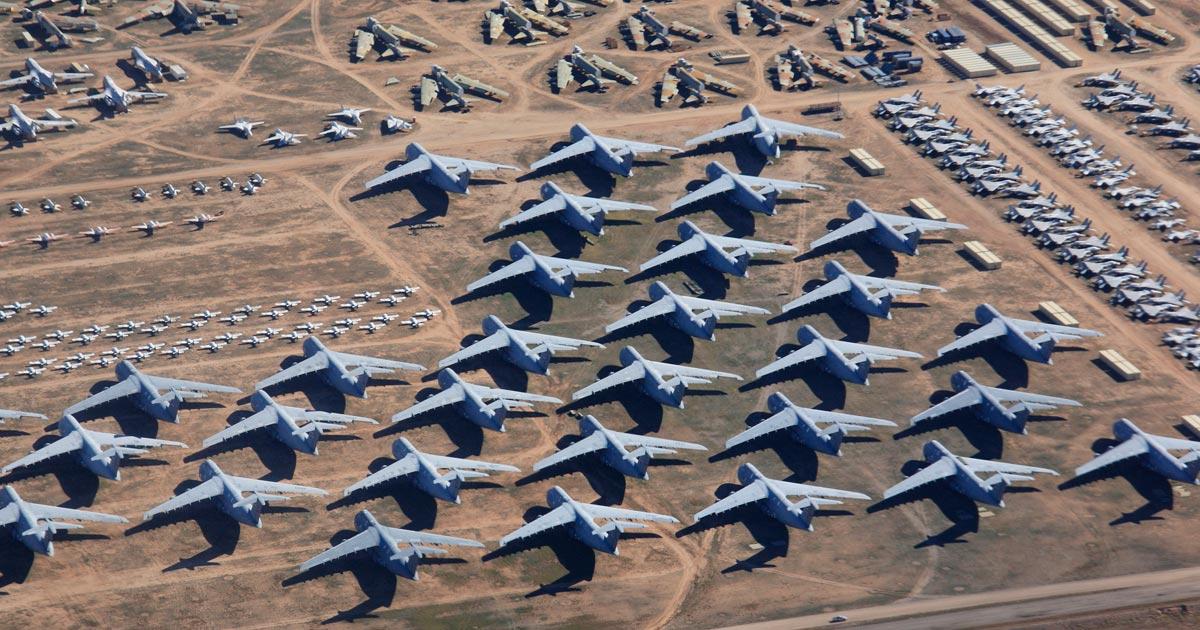
With both Democrats and Republicans predictably falling over each other to increase US defense spending, what serious commentary and debate exists primarily focuses on how best to effectively allocate the additional billions of taxpayer dollars to be dumped into the black hole of the Pentagon. One analyst, at Reason, dared to suggest that Congress wasn’t taking the matter seriously, complaining all they were concerned about was safeguarding the defense jobs in their districts and contributions to their own campaigns.
And while this has long been demonstrably true, the fact is the conversation about US defense spending isn’t serious because we face no serious threats to our real national interests—and haven’t in arguably more than a generation. As Richard Cummings explained in “Lockheed Stock and Two Smoking Barrels,” and as political scientist John Mearsheimer has noted, US foreign policy in the post–Cold War era has been largely driven by corporate and institutional interests, as well as domestic politics.
As the American public is scaremongered into acquiescing in Cold War II, it is important to counter narratives of US military decline and incapability with the truth. Far from being evidence we need to spend more, the Russian performance in the invasion of Ukraine clearly shows we spend plenty—and should be spending less. With the most marginal of US assistance one of the poorest and weakest states in Europe is effectively bloodying Russia, our supposed penultimate nemesis behind Beijing.
Whether or not he actually believes it, or whether his close ties to the military-industrial complex obligate him to say it, US senator Tom Cotton surely is dreaming when he forecasts a Russian invasion of Ukraine means Russia threatens the US homeland.
Imagine, Russia and China, who between them barely have two functional diesel-powered aircraft carriers, and together don’t spend half of what the US does on defense, crossing the giant moats of the Atlantic and Pacific, escorting the largest flotilla of troop transports in recorded history, and facing off against the United States’ eleven nuclear powered aircraft carrier strike groups—which in addition to having their own full complements of over fifty high-tech jet fighters are escorted by two guided missile cruisers and four destroyers. Already by far the most powerful surface navy in the world, beneath the ocean’s surface prowl its more than fifty nuclear-powered fast-attack and ballistic missile subs. Together it is estimated they would bring to bear ten thousand missiles’ worth of firepower to such a hypothetical fight—not including the carriers’ own several hundred missile-armed fighters.
Apart from the fact that neither China nor Russia have ever threatened it, nor have any reason to, US military supremacy in our hemisphere is a foregone conclusion.
What else could American security possibly require?
What could the continual standing presence of over a million active US service personnel, many forward deployed at over seven hundred military bases in over sixty countries around the globe, do but invite the involvement of the United States in every conflict around the world forever?
How does this make Americans safer?
Since they can’t point to any successful interventions in the past twenty years—from Iraq to Afghanistan, Libya, and Syria, to name just a few—the foreign policy and media establishment lean on empty tropes, like “safeguarding the rules-based international order” or making the world “safe for democracy,” in order to justify the continuation of an incoherent and unrealistic policy of attempted permanent global hegemony.
Advocates of permanent US global supremacy conveniently omit, as they always do, that the US has always rejected the application of those very rules to itself and, further, that many of the most strategically critical US allies, now and in the first Cold War, either were not / are not democrats or have/are committing human rights abuses.
From its rejection of a World Court ruling against it for mining Nicaraguan harbors in the 1980s to Congress passing legislation authorizing the US military to invade Belgium in the event The Hague attempted to try any Americans for the crimes committed in the invasion and occupation of Iraq, it is easy to see why many governments around the world are unwilling to join the US in imposing sanctions on Russia: to them it looks like just another illegal invasion of a sovereign country by a meddling great power.
Not only do our government’s policies make Americans less safe and erode our moral standing, but they also cost a fortune. Doug Bandow is surely right when he says it is past time for our wealthy European allies to start taking care of their own security. To those who wonder why Europe opted to forgo an independent course following the end of the Cold War and instead remain essentially a junior partner in the existing US-dominated security architecture, consider that the base salary of a US Army enlistee is over $1,500 a month—while the cost of just operating the army’s aircraft carrier strike groups costs US taxpayers $21 billion annually.
Suddenly the generous model of the postwar European welfare state looks less tenable.
The coming years may tell.
But just as sure as debate within Europe about the reality of its changing security environment will be deadly serious, involving major policy shifts, debate in the United States will be anything but—focused on how best to spend another billion here and there, ignoring the obvious fact that the United States itself could be defended at a fraction of the cost, and that every intervention and policy of the prior generation was a complete failure and has made the world more dangerous, not less.



